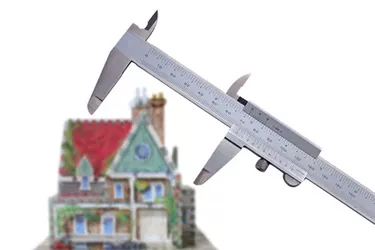
When you sell a home and hold the mortgage on it for the buyer, this is known as seller financing or a private mortgage. Holding a mortgage for someone is typically done when the buyer cannot get approved for traditional financing through a bank or mortgage lender. There are certain things you must be aware of if you're selling your home and are interested in holding the mortgage for someone to buy it.
Step 1
Put the home up for sale. If you haven't already listed the home for sale and found a potential buyer, then list the home with a real estate agent or put it up for sale on your own. You can note in your ad for the home that seller financing is available.
Video of the Day
Step 2
Create a sales and purchase agreement. Hire a real estate attorney to draw up the agreement once you accept a buyer's offer on the home. If you are working with a real estate agent, the agent can handle the sales and purchase agreement part of the transaction.
Step 3
Create a promissory note, which deals with the mortgage financing. You should have a real estate attorney do this. The promissory note, once signed by the buyer, is the buyer's promise to repay you in monthly mortgage payments at the interest rate you've agreed to over the term of the mortgage.
Step 4
Establish an escrow account. The real estate attorney or a title company can do this. All of the monetary transactions for the purchase and sale of the home as well as the monthly mortgage payments are handled through this account. Initially, the buyer funds the escrow account with the down payment called for in the purchase and sales contract, which is then disbursed to you.
Step 5
Receive monthly payments, which are made to the escrow account. The escrow account holder then disburses the funds to you based on the terms and conditions in the contract. Monthly payments continue until the term of the mortgage is over or the borrower refinances with a traditional mortgage lender and pays you off.
Tip
The interest rate on a privately held mortgage is usually higher than the market interest rate. Generally, a private mortgage holder can receive from 12 percent to 15 percent interest.
Private mortgage holders should do their due diligence before entering into an agreement with a borrower. This includes having the borrower complete a mortgage application, obtaining a deposit and running a credit check on the borrower–just as a traditional lender would do.
Video of the Day